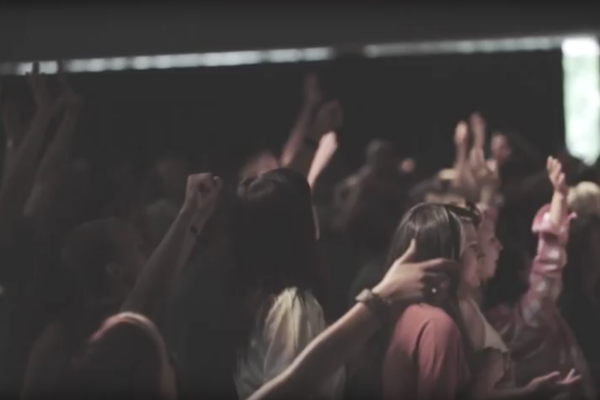People come from around the world to Redding, California to learn miraculous healing. The California Dream Series (a media collaboration of KQED, CALmatters, KPCC and others) featured CRCC’s senior director of research and evaluation Richard Flory’s research about the school that brings them to Redding: Bethel School for Supernatural Ministry. Bethel was featured in Flory and Brad Christerson’s book, The Rise of Network Christianity, as emblematic of Independent Network Charismatic, or INC, Christianity, one of the fastest growing form of Christianity in the US.
Here is an excerpt from the written story:
Flory, the director of research at the Center for Religion and Civic Culture at the University of Southern California, speculates that’s partly why, while religion is in decline, especially among younger people, this expression of neo-Charismatic Christianity — Charismatic meaning emphasizing miracles and manifestations of the Holy Spirit — is one of, if not the, fastest-growing forms of Christianity in this country and the world.
California is home to two of the world’s most prominent examples: Harvest International Ministry (HRock Church), based in Pasadena, and Bethel.
“California is not the only incubator of Pentecostal/Charismatic Christianity,” says Flory, “but it is one of the most important. There’s less religious infrastructure that tells you what you can and can’t do here.”
In general, Flory says, Pentecostalism is associated with specific denominations like the Assemblies of God, while Charismatic tends to refer to a more independent form of Pentecostal Christianity that exists beyond traditional denominational bounds. But both emphasize miracles, prophecy and other gifts of the Spirit.
In the popular imagination California may not be a particularly religious place, but there are more than 200 megachurches here (churches with regular attendance of more than 2,000 people), more than in any other state. Pentecostalism itself was born here. “California has, for everybody, been a land of opportunity, not just liberal hippie types,” Flory says.
Click here to read the entire story.
Building on this story, KPCC’s Airtalk talked to Flory about what makes California an important place for Pentecostalism. He said:
The Pentecostal movement finds its roots in the 1906 Azusa Street revival. Mel Robeck ,who is a professor at Fuller Seminary in Pasadena, has this great image which is that it becomes a global movement after that 1906 revival. He equates it to a perfect break in a billiard game with LA being the cue ball and all the other balls being all the people who went around the world. So L.A. is a key site for understanding Pentecostalism, but the growth is actually around the world, and within the US, it’s mostly the kinds of groups that we were looking at with Bethel, where they are independent, they are focused around a charismatic leader. And one of the things to think about is that because of their emphasis on the Spirit, it’s kind of unpredictable. The authority really lies in the leader and the individuals.
L.A. is not the same as a New York or Chicago where it’s much more of a company town, it’s more of a denominational town. A lot of people you talked to in these different groups, and not just Bethel and their co-travelers, but other people who are doing innovative things around their religion is that often they fail on their first time out, but that they move on, they try a new angle and they get successful.




